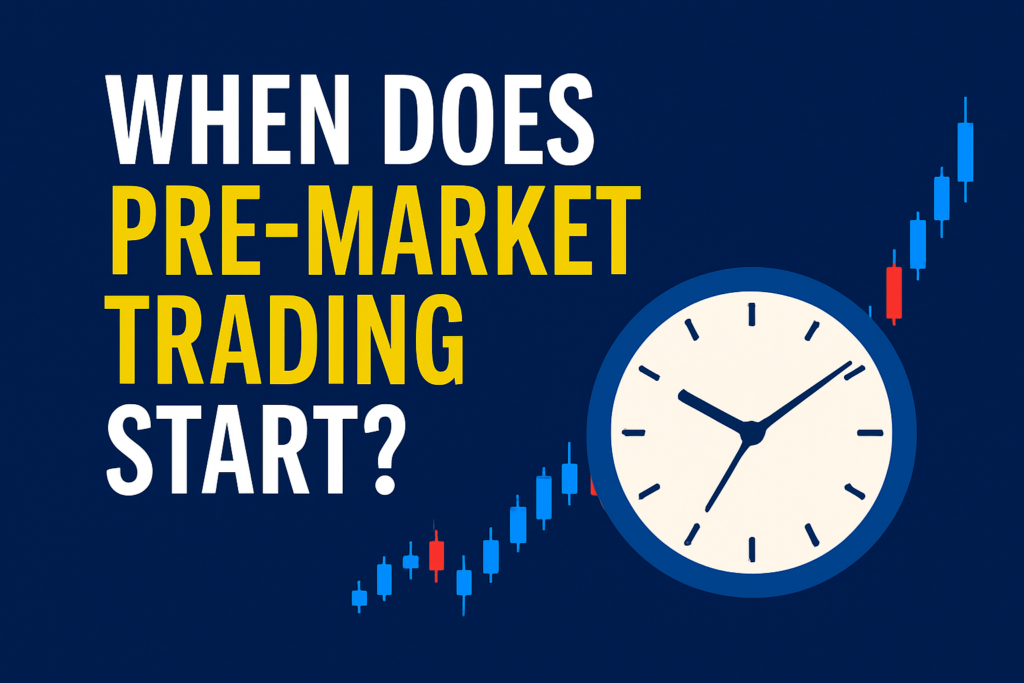In the fast-paced world of financial markets, timing is everything. That’s why many retail traders are turning their attention to pre-market trading — a window of opportunity that opens before the traditional market bell. But when exactly does it start, and why does it matter?
🕓 What Time Does Pre-Market Trading Start?
Most U.S. brokerages open access to pre-market trading at 4:00 AM Eastern Time (ET) and close it at 9:30 AM ET, just as the regular session begins. However, the actual hours may vary depending on your broker:
| Broker | Pre-Market Start Time | Notes |
|---|---|---|
| Webull | 4:00 AM ET | Full access for all users |
| TD Ameritrade | 7:00 AM ET | Limited access |
| Fidelity | 7:00 AM ET | Only for limit orders |
| Moomoo | 4:00 AM ET | Active traders friendly |
| Charles Schwab | 7:00 AM ET | Some restrictions may apply |
Always check with your broker to confirm the exact availability and conditions.
📈 Why Trade in Pre-Market Hours?
Pre-market trading can offer a strategic edge for several reasons:
- React to Breaking News: Earnings reports, mergers, or geopolitical news often drop outside of regular hours.
- Get Ahead of the Crowd: Enter or exit positions before most traders even log in.
- Take Advantage of Price Gaps: Stocks may jump or drop significantly before the opening bell.
But pre-market isn’t without its challenges…
⚠️ Risks to Watch Out For
- Low Liquidity: There are fewer participants, so it can be harder to enter or exit positions.
- Wider Spreads: The difference between bid and ask prices can be much larger.
- Increased Volatility: Price swings can be sharp — great for pros, risky for beginners.
That’s why it’s crucial to use limit orders (never market orders) and manage risk accordingly.
🛠️ Tips for Retail Traders
- Use News Filters: Tools like Benzinga, Bloomberg, or TradingView alerts can help identify movers early.
- Stick to High-Volume Stocks: Large-cap stocks are more liquid even during off-hours.
- Avoid Chasing: Let the trade come to you — don’t fall for early price spikes.
Final Thoughts
Pre-market trading can be a powerful tool — if used wisely. Whether you’re reacting to earnings, riding momentum, or simply avoiding the noise of the regular session, knowing when and how to trade early can help you stay one step ahead.
Just remember: With great timing comes great responsibility.







